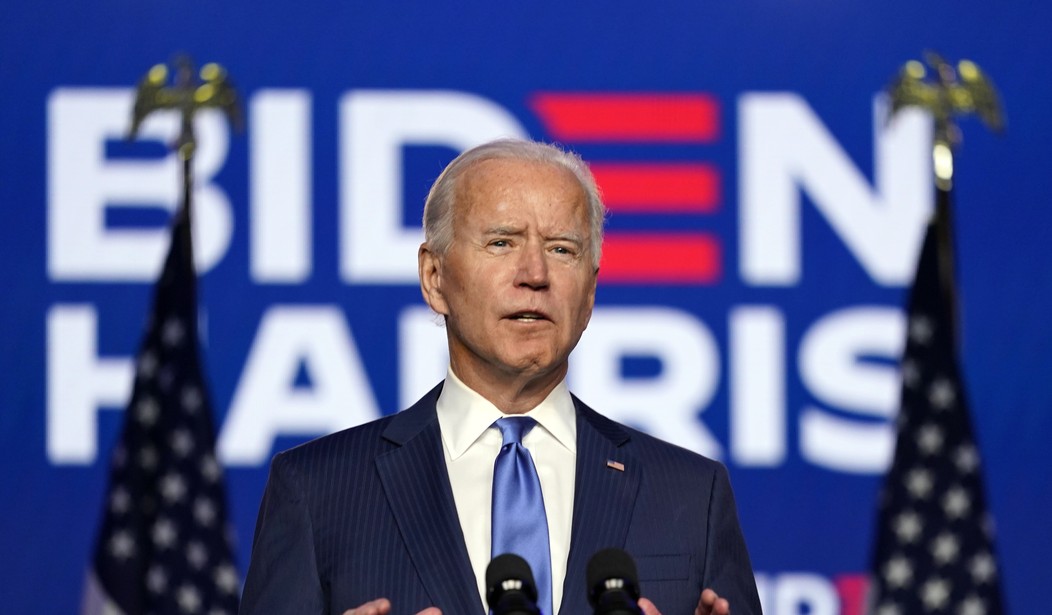Most experts agree that the Federal Communications Commission (FCC) under a prospective Biden administration (and a new FCC Chairman) will look to implement Title II net neutrality regulations on internet carriers despite no clear evidence on why such restrictions are needed.
While Biden didn’t prioritize the issue during his campaign, net neutrality is an idea that is near and dear to the hearts of many in the Democratic Party. The FCC implemented the Title II rules under Obama-era chairman Tom Wheeler in 2015, with current Chairman Ajit Pai leading the commission to overturn the regulations in 2017.
U.S. providers have invested nearly $2 trillion in broadband infrastructure in the past quarter century. After flattening out during the days when Title II was in place, investment started to rise after the rules were repealed. Average speeds have jumped an estimated 40 percent in just the past two years.
Biden (and Rosenworcel) express support
A Biden campaign spokesman told CNET last month that the former vice president is a supporter of strong net neutrality regulations.
"As Barack Obama's vice president, Joe Biden was proud to push for net neutrality and see the [FCC] take direct action to keep the internet open and free for all Americans," the spokesman said in a statement.
CNET noted, however, that Biden did not support net neutrality legislation as a senator, including the 2007 Internet Freedom Preservation Act.
Still, current Democratic FCC Commissioner Jessica Rosenworcel, the heavy frontrunner to assume the role of chair, is a big proponent of Title II. She called the decision to end the regulations “corrupt.”
Recommended
Those regulations prevented providers from blocking, throttling or prioritizing data, even though there was no evidence before Title II was implemented that ISPs engaged in this conduct in a widespread manner. The Taxpayers Protection Alliance (TPA) conducted an investigation on the issue in 2019, finding few legitimate complaints of nefarious activity by providers after the rules went away.
On top of that, the pandemic proved the resiliency of the current American internet infrastructure. European nations asked bandwidth hogs like Netflix and YouTube to pull back on a resolution to help shepherd more important communications in countries with sluggish internet. That kind of prioritization (ironic, isn’t it) wasn’t needed in the U.S., which saw an increase in internet infrastructure investment after the heavy-handed Title II rules were repealed.
The nonpartisan Tax Foundation recently noted that investment in internet infrastructure has lagged in Europe due to difference in regulatory policy.
“America’s more market-driven, light touch regulatory regime has proved more conducive to capital investment than Europe’s more top-heavy approach,” wrote the group’s Alex Muresianu.
So why the emphasis on putting Title II back into place? It seems to be about control.
As Cowen & Co. analyst told Bloomberg, “Democrats are more comfortable with an activist role.”
Brent Skorup, senior research fellow in technology policy at Mercatus Center, told TPA that the government is used to having control over broadcast and cable TV, which used to be the prevailing mediums for information dissemination. Now, the internet fills that role and Democrats feel the need to have the government’s hands on it.
“As they see it we need adults in the room to ensure the government has regulatory control over this transformative medium,” Skorup said, adding that control could also include pricing and distribution of subsidies.
Some experts don’t anticipate that a Democrat-led FCC will take the next step and dictate broadband prices or force the unbundling of services.
“Are they going to reimpose net neutrality? Yep. Are they going to impose price regulation? I don’t think so,” Gallant told Bloomberg.
Former FCC chief of staff Blair Levin, now a policy adviser at New Street Research, told S&P Global that "the real question is will they [Democrats at the FCC] take the next step and go to pricing and unbundling. I think the answer to that is almost certainly no."
Some hope that Title II will remain buried
Not everyone is convinced that a Democratic-led FCC will reimplement Title II. American Enterprise Institute visiting scholar Mark Jamison penned a hopeful op-ed noting that other issues such as taxes, healthcare and environmental regulations will take up political capital in the first few years of a Biden administration, possibly pushing Title II efforts to the background. He noted that “Big Tech,” such as Facebook and Google, now must fend off government antitrust cases against them. Those companies were among the biggest cheerleaders for Title II, “but their arguments for net neutrality have come back to haunt them,” Jamison wrote.
Skorup told TPA that the debate is a little different in 2020, given that the dire predictions about the demise of the internet sans regulations did not come true.
“The public, I think, is a little tired of the issue,” he said. “The internet looks the same or better than it did in 2015.”
Take those thoughts as a silver lining in a murky communications policy under what appears will be a new regime at the FCC. A Biden administration should take the old adage to heart as it pertains to the current light-touch approach to the internet – if it ain’t broke, don’t fix it.
Johnny Kampis is a senior fellow and investigative reporter for the Taxpayers Protection Alliance.

























Join the conversation as a VIP Member